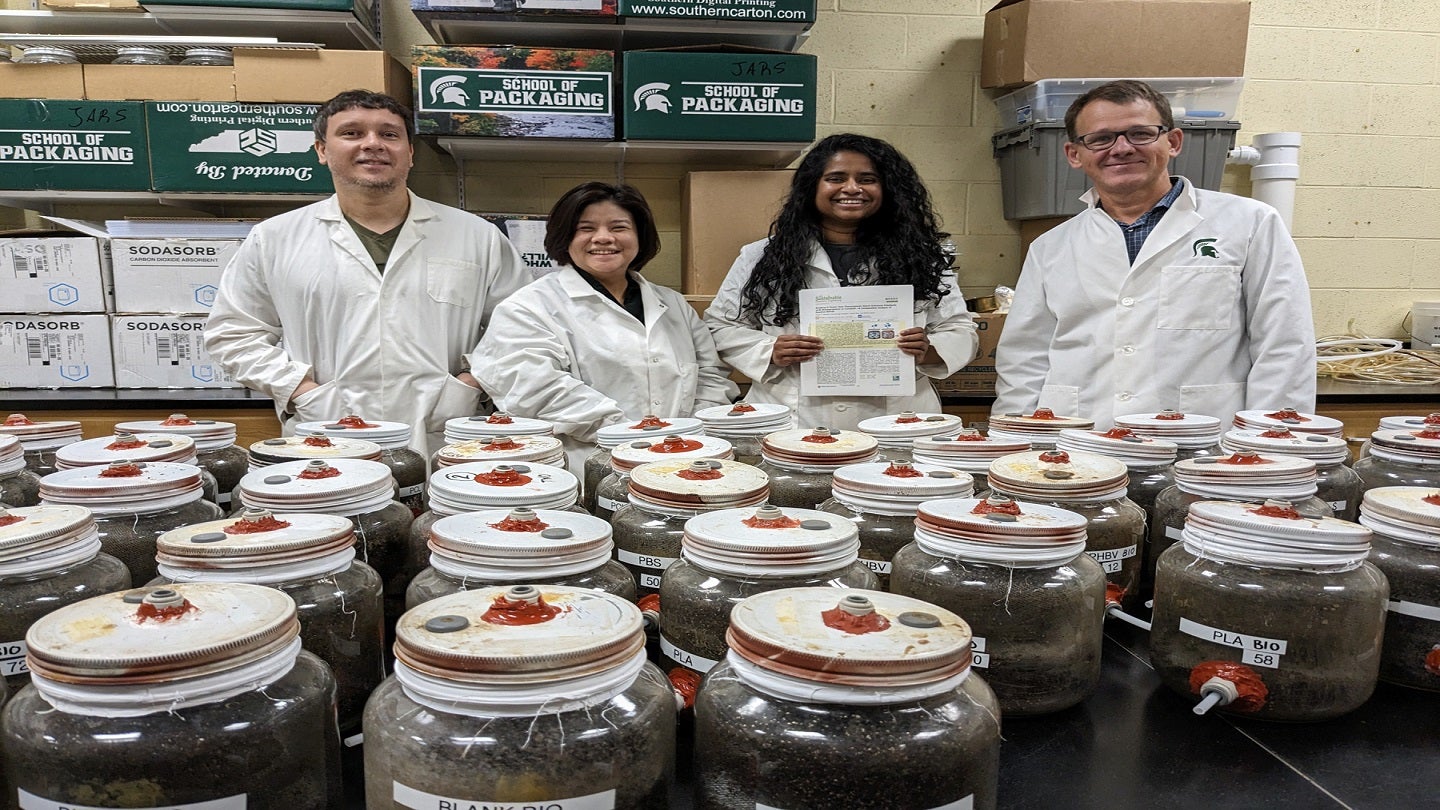
A team of researchers from the Michigan State University (MSU) School of Packaging have developed a new method to make sustainable petroleum-based plastics more biodegradable.
The research was published in the ACS Sustainable Chemistry & Engineering journal. It was led by MSU professor and Amcor-endowed chair in Packaging Sustainability Rafael Auras.
The team has created a biobased polymer blend that can be composted both at home and in industrial settings.
To conduct this research, the team worked on polylactic acid (PLA), which is derived from plant sugars and not petroleum. PLA is a widely used component in sustainable packaging.
The team said PLA’s waste by-products, if managed properly, are all natural materials such as water, carbon dioxide, and lactic acid.
However, to biodegrade optimally, PLA requires industrial composters, which provide higher temperatures and more conducive conditions for the PLA to break down, unlike in-home composters.
Auras and his team carried out experiments to demonstrate that the PLA can remain for approximately 20 days before microbes start digesting it within an industrial composting environment.
The experiments were supported by the US Department of Agriculture and MSU AgBioResearch.
To reduce this 20-day wait, the team integrated a carbohydrate-derived material, referred to as ‘thermoplastic starch’, into the PLA.
This starch was found to be an easily compostable addition for microbes while the PLA degraded.
Laboratory doctoral student Pooja Mayekar said: “When we talk about the addition of starch, that doesn’t mean we just keep dumping starch in the PLA matrix. This was about trying to find a sweet spot with starch, so the PLA degrades better without compromising its other properties.”
The team observed how different PLA films broke down during the composting process in different conditions.
The results showed that ‘completely compostable biobased plastic packaging is possible’, though Auras said that its commercial adoption cannot be guaranteed at this point simply on the basis of this study.



